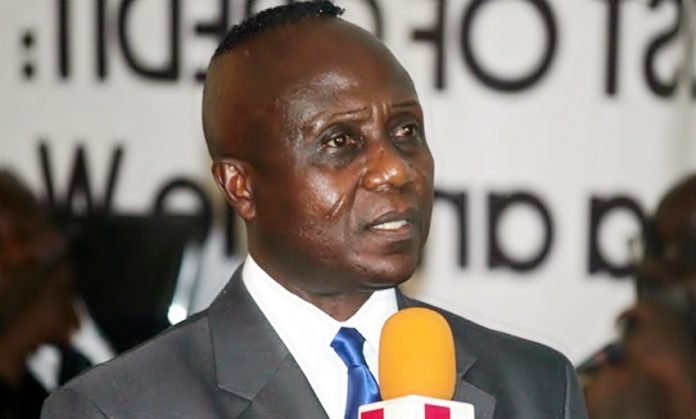The Institute of Economic Affairs (IEA) is proposing a strict oversight by Parliament over borrowing and debt accumulation as per Article 181 of the Constitution, a move it believes will significantly reduce the country’s unsustainable debt.
The economic and policy think tank is also recommending the imposition of a debt ceiling of 60% of Gross Domestic Product (GDP) at any time, which is generally regarded to be a sustainable threshold.
In a paper on “Institutionalising Fiscal Discipline and Macroeconomic Stability for Sustained Growth in Ghana: The Constitutional Pathway”, it said only in times of emergency or crises should Parliament approve borrowing that would breach the debt ceiling, adding, “even in that circumstance, Parliament should indicate a time frame to return to the ceiling. This will be akin to what pertains in the US”.
According to the IEA, if this rule is strictly followed, the perennial debt crises will be prevented.
Again, the rule will also force fiscal discipline on the economic managers as a necessity to operate within the borrowing and debt ceilings, stressing, the borrowing and debt ceilings can be incorporated into the Fiscal Responsibility Act.
It is additionally seeking constitutional backing for them.
The IEA has researched extensively in the area of debt sustainability.
It evidence was that constant borrowing to finance the country’s budget deficits has historically fuelled the debt, for long periods to unsustainable levels.
Indeed, the country’s debt that had reached over 100% of GDP prior to 2004 dropped to 26% in 2006 after receiving the Highly Indebted Poor Country Initiation relief. However, the debt has ballooned yet again to over 100% presently due to persistent fiscal profligacy.
This, the IEA pointed out, has taken Ghana back to the International Monetary Fund and prompted restructuring of the debt.
IEA seeks institutionalisation of fiscal rule
Due to Covid-19 pandemic, the fiscal rule established by the Fiscal Responsibility Act (FRA), 2018 (Act 982) was suspended.
The FRA set a ceiling of 5% for the overall deficit and included, appropriately, an escape clause allowing the rule to be suspended by the Finance Minister in case of a range of stipulated unexpected shocks.
However, the IEA said, contrary to its suggestion that the ceiling should be promptly restored after the amelioration of the shock, the FRA made the restoration open-ended.
It is therefore seeking the institutionalisation of the fiscal rule in the Constitution to safeguard it.
Latest Stories
-
Don’t bring soldiers to polling stations – Martin Kpebu
30 seconds -
Ogyeahohuo Yaw Gyebi II retained as President of National House of Chiefs
16 mins -
Embrace ICT to fit in digital world – Ho NYA boss to youth
59 mins -
We don’t want armed soldiers at polling stations – Tanko-Computer
1 hour -
Drama as police corner armed robbers inside locked forex bureau at Lapaz
1 hour -
Nigerian-born conquers childhood hearing loss to become KNUST’s overall best graduating student
2 hours -
ECOWAS Court orders compensation for violations against New Force’s Shalimar Abbiusi
2 hours -
Dreams FC denies allegations of attempting to sign Najeeb Yakubu
3 hours -
Election 2024: ‘Right to free and fair elections non-negotiable’ – Akufo-Addo
3 hours -
Kurt Okraku took out my passport from the U23 squad that travelled to Japan – Najeeb Yakubu alleges
3 hours -
Where hope fails: Ghana’s decaying home for the destitute
3 hours -
NDC Mining Committee for 2024 campaign refutes allegations of recruiting thugs for elections
3 hours -
Traction Control: A lifesaver with an off switch? Here’s why it exists
4 hours -
I don’t need anyman to woo me with money – Miss Malaika 2024 winner refutes pimping claims
4 hours -
”Kurt Okraku sabotaged my national team career because I refused to sign with Dreams FC” – Najeeb Yakubu
4 hours

